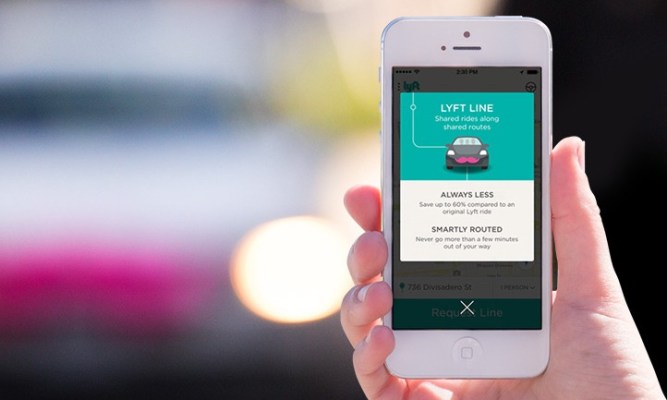Shared rides are the new “it feature” among on-demand transportation services, with Uber, Lyft and Sidecar all releasing their own versions to users over the last few weeks and months. But the California regulator which oversees the industry isn’t so keen on the idea.
Earlier this week the California Public Utilities Commission issued warnings to all three companies, stating that their implementation of shared rides isn’t allowable under the legal framework it established to regulate the nascent industry. In particular, the CPUC argues that the services violate Public Utilities (PU) Code Section 5401, which “prohibits a charter party carrier from charging passengers on an ‘individual-fare basis.'”
With each of these transportation services, shared rides were designed to offer lower prices for passengers that were all going in the same direction. A side benefit to that is that more passengers means fewer individual rides happening simultaneously, which if it scales can actually reduce the amount of traffic on the road.
However, that type of service wasn’t originally a part of the framework the CPUC came up with, and, in fact, is prohibited by it. The warning letter states that “charter party carriers cannot charge an individual fare when carrying multiple persons in a vehicle” and whoever books the car must have individual use of it.
The warning letter also makes clear that the companies had not approached the regulator before opening up those services to consumers or petition it to revise the framework.
Uber issued the following statement about the warning letter:
We welcome the opportunity to share with the CPUC the significant benefits of uberPOOL and how it really works so that we can continue to bring its unmatched convenience and affordability to communities and traffic jams across the Golden State.
UPDATE: Later in the day, Uber changed its tune and issued a less touchy-feely statement:
We thought we had seen it all, and then the California PUC decided they would try to shut down app-based carpooling. The only conclusion we can come to is that the PUC doesn’t like technology, environmental progress, or anything that might make California a better place to live.
Here is Lyft’s version:
San Francisco residents have embraced Lyft Line as an affordable, efficient way to get around their city. By connecting shared rides along shared routes, Lyft Line is helping to improve daily commutes and reduce traffic – ultimately contributing to carbon reduction and improved air quality in the process. We welcome the opportunity to discuss this new form of shared transit with President Peevey and the CPUC to ensure that residents continue to have access to this innovative and sustainable transportation option.
And Sidecar’s:
Sidecar received a warning letter from the CPUC that effectively said Shared Rides are a violation of the law. Shared Rides are good for our cities because they reduce congestion and pollution and they offer a safe and very affordable way to get around. San Francisco was quick to embrace Shared Rides because they are so convenient and well-priced you can get across town for a just a little more than you would pay for the bus. We hope to work with the CPUC to create a new framework that will support continued operation and allow us to expand Shared Rides and its benefits across the state.
